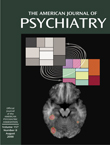More Questions About Recovered Memories
Dr. Chu and colleagues claimed that their study “strongly suggests…that independent corroboration of recovered memories of abuse is often present” (p. 749). What they actually found, however, was that many patients reported finding some type of corroborative evidence for at least some of their recovered memories. It remains plausible that the vast majority of recovered memories (some patients reported over 100 abusive episodes) were never corroborated. As well, much of the corroborative evidence that was obtained may have been largely circumstantial. For example, the authors accepted reports of physical scars as evidence of abuse, yet scars have also been offered as evidence for recovered memories of alien abductions (1)! Claims of corroborative evidence must therefore be examined carefully (indeed, even confessions by alleged perpetrators might sometimes be false if they have been obtained in a context of high stress and extreme social pressure [2]).
The authors also concluded that “psychotherapy usually is not associated with memory recovery” (p. 749), partly because few patients reported recovering memories during therapy sessions. But this conclusion is based on the unwarranted assumption that suggestive effects are immediate. Rather, experimental demonstrations of false memory induction indicate that several days are often required for such memories to become established [3]. These suggestions made during therapy could quite conceivably result in false memories arising outside of therapy.
Most patients also reported that before memory recovery, they had never received an explicit suggestion from anyone that they had been abused. If, however, the patients had already made a strong commitment to the validity of their memories, they may have been strongly motivated to deny any suggestive influence. Furthermore, explicit suggestions of trauma might actually be less effective in inducing false memories than more subtle suggestions (including such as might arise through exposure to movies or articles about recovered memories), in that explicit suggestions can be more easily identified by recipients as the cause of their recovered “memories” (1, 4). In other words, memories implanted through subtle suggestions are more likely to be perceived—by both therapist and patient—as internally generated and hence valid.
In conclusion, the study by Dr. Chu and colleagues does little to alleviate concerns that recovered memories of abuse are often false.
1. Newman LS, Baumeister RF: Toward an explanation of the UFO abduction phenomenon: hypnotic elaboration, extraterrestrial sadomasochism, and spurious memories. Psychol Inquiry 1996; 7:99–126Crossref, Google Scholar
2. Gudjonsson GH: The Psychology of Interrogations, Confessions, and Testimony. New York, Wiley, 1992Google Scholar
3. Hyman IE, Troy TH, Billings FJ: False memories of childhood experiences. Applied Cognitive Psychol 1995; 9:181–197Crossref, Google Scholar
4. Powell RA, Boer DP: Did Freud mislead patients to confabulate memories of abuse? Psychol Rep 1994; 74:1283–1298Google Scholar



